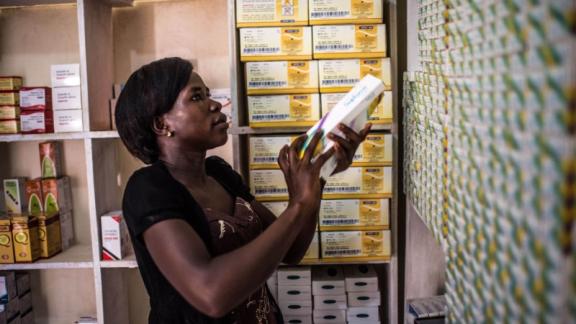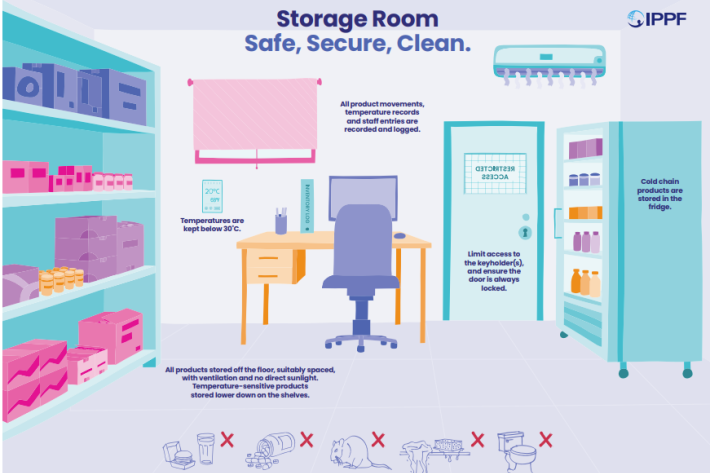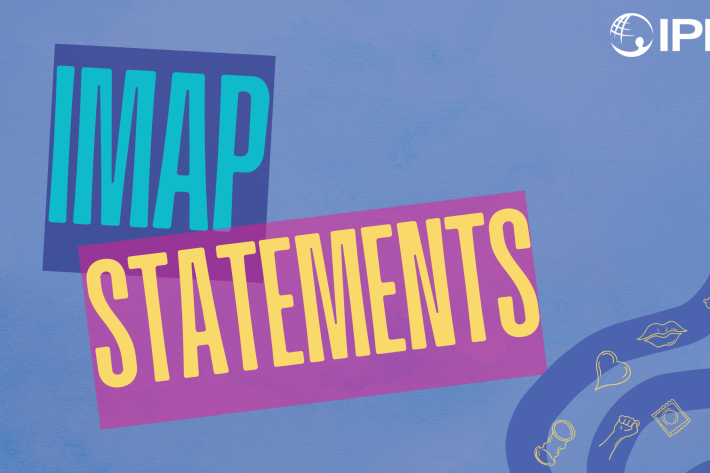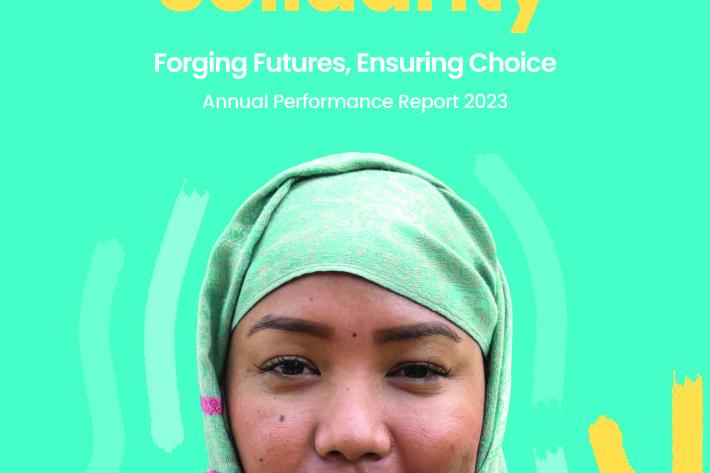Spotlight
A selection of resources from across the Federation
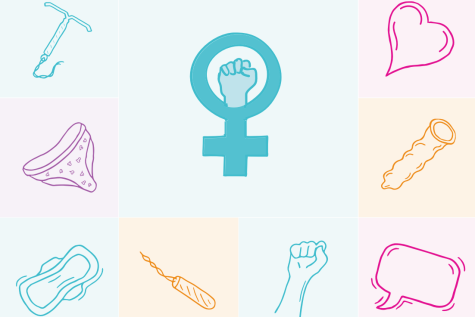
Technical Brief: Designing and Delivering Inclusive, Rights-Based Sexual and Reproductive Healthcare to Transgender and Gender Diverse People
This technical brief outlines key recommendations across several sexual and reproductive health service areas to promote access to inclusive care for transgender and gender diverse people.
Filter our resources by:

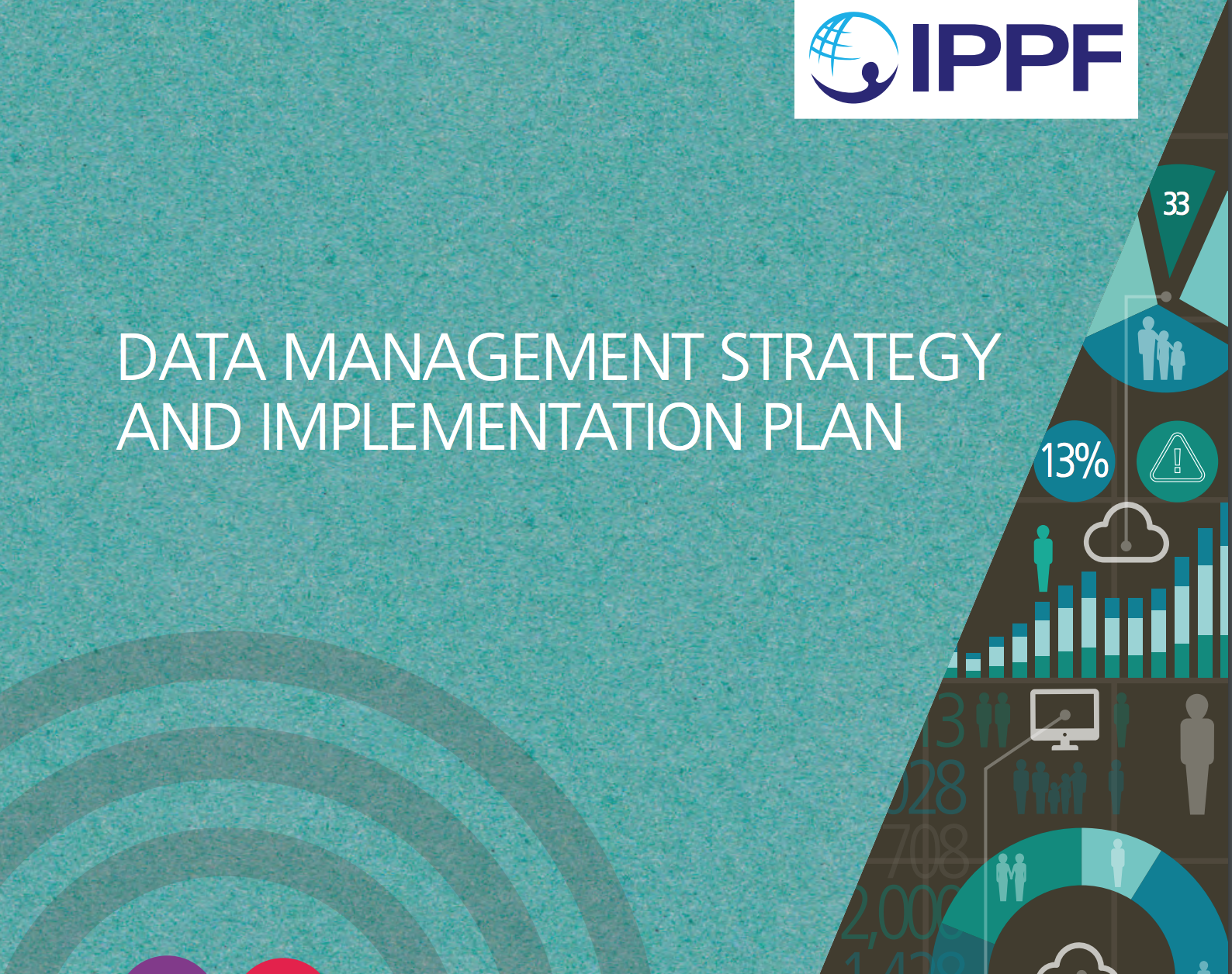
| 20 July 2020
Data Management Strategy and Implementation Plan
IPPF’s first ever Data Management Strategy results from an extensive and participatory collaboration to ensure that it is guided by and aims to meet the needs of all data stakeholders across the Federation. It serves as a statement of principles for data management for IPPF, and with a detailed implementation plan, provides a guide to action. The strategy describes how all institutional data will be governed, sets out processes to improve and maintain data quality, and addresses how data can be accessed and used to its full potential by all data stakeholders. With a clear vision, six values and four result areas (Data Governance, Quality, Access and Use), the strategy highlights the value of data as a critical asset for the Federation in achieving the Expected Results outlined in IPPF’s Strategic Framework 2016-2022. It also shows how all data managers and users can work more effectively and efficiently by collecting, storing, translating and using institutional data for internal decision-making as well as being vital to our donors and stakeholders, so that we can be held accountable and also promote the important work being done by IPPF across the globe.

| 13 July 2020
Advocacy good practices & lessons learned: ensuring sexual & reproductive safety during COVID-19
The COVID-19 pandemic and its consequences are negatively affecting the availability of and access to basic services, including sexual and reproductive health (SRH) care, and is further exacerbating existing inequalities. IPPF Member Associations have been impacted by the spread of COVID-19, as service delivery points have been forced to close and some operations have had to be suspended. Concerted political action to secure sexual and reproductive health and rights (SRHR) provision is necessary to adequately face this challenge – to this end, IPPF Member Associations have been actively engaging in advocacy with decision makers at national, regional and international levels to ensure that access to SRHR and SRH services is safeguarded and available to all who need it. They have demonstrated exceptional innovativeness, leadership and resilience in their advocacy efforts to secure these goals.
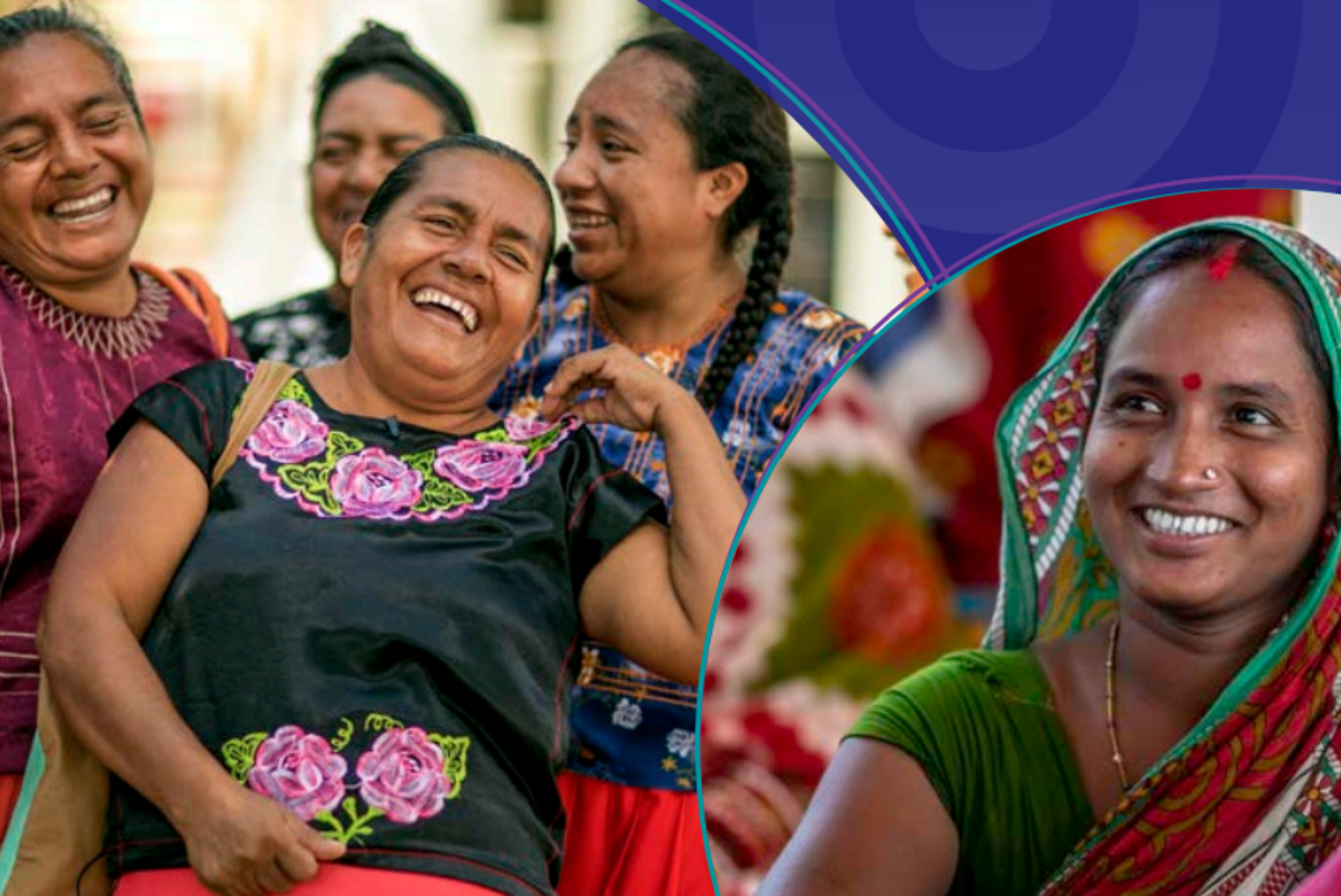
| 08 July 2020
ICPD+25 Nairobi Summit Commitment Analysis Report: A roadmap for fulfilling the promise
The Nairobi Summit on ICPD+25 – Accelerating the Promise; marked the 25th anniversary of the International Conference on Population and Development (ICPD) held in Cairo in 1994 that recognized sexual and reproductive rights as human rights for the first time. The Summit brought together governments, civil society, academia, the private sector, faith-based organizations, international financial institutions, grassroots organizations and other partners interested in the pursuit of sexual and reproductive health and rights. Participants made commitments as part of an international effort to ensure that the promise of the ICPD Programme of Action (PoA) and the 2030 Agenda are achieved, and women and girls have autonomy over their bodies and their lives. The International Planned Parenthood Federation (IPPF) analysed the commitments made by governments of 137 countries who participated at the Summit to contribute to accountability action at the national level to ensure that those commitments are fulfilled.
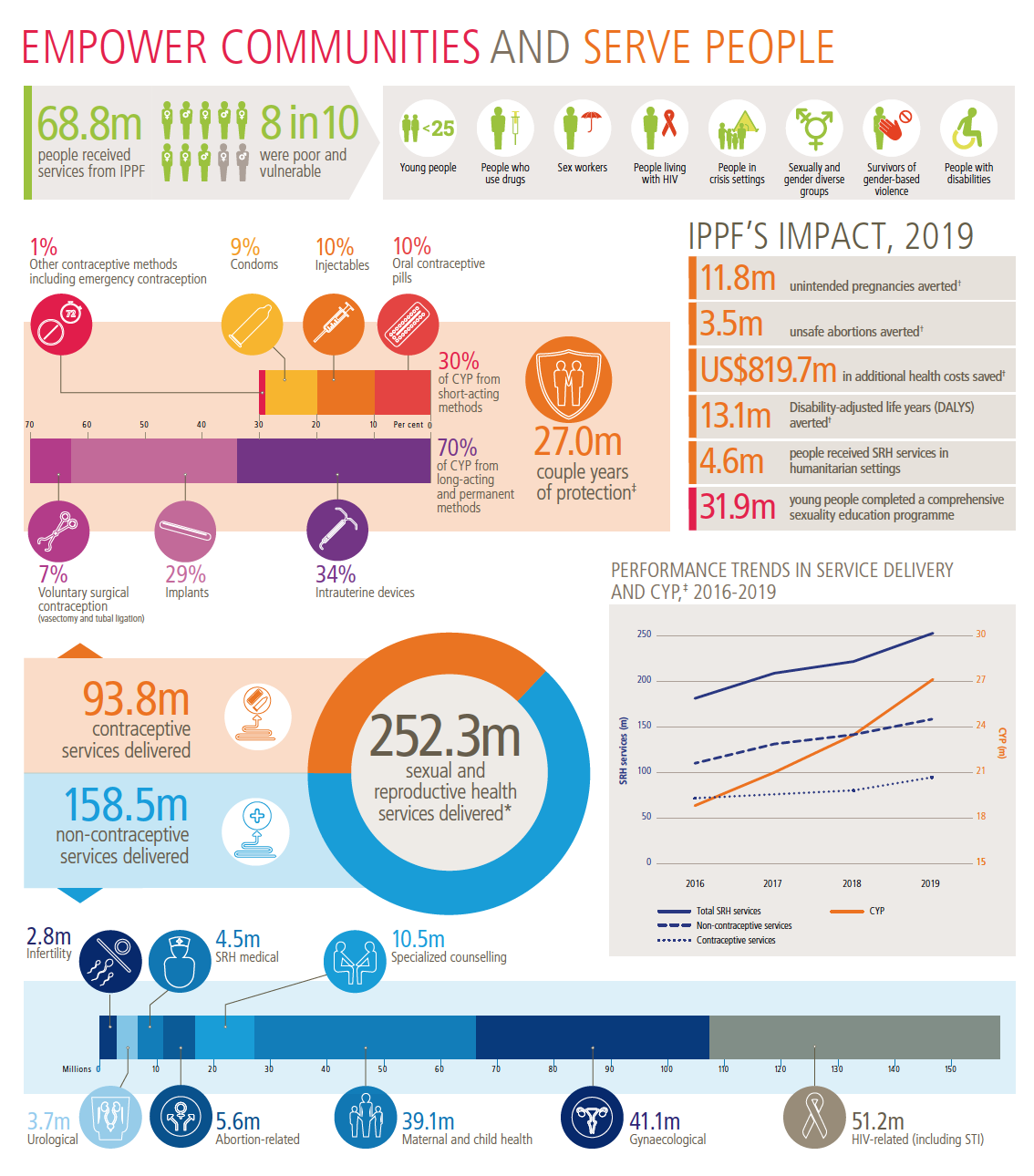
| 06 July 2020
At a Glance 2019
At a Glance 2019 is a summary of our key achievements from our 2019 Annual Performance Report. The document is available in Arabic, English, French, Portuguese and Spanish.

| 26 June 2020
Addressing the needs of women & girls affected by FGM in service delivery facilities handbook
IPPF presents the publication - Addressing the needs of women and girls affected by female genital mutilation in service delivery facilities – A handbook for sexual and reproductive health organizations. Although female genital mutilation rates are decreasing, and there is increasing recognition among global, regional, local and grassroots stakeholders of the need to encourage its abandonment, women and girls around the world continue to undergo this practice, experiencing grave consequences to their mental and physical health, including their sexual and reproductive health.

| 23 June 2020
Pride Month Quiz: How much do you know about these LGBTI+ people of color?
Pride Month: How much do you know about these LGBTI people of color?This Pride Month, we’re celebrating just some of the noteworthy LGBTI people of color who have had a unique impact on the world, whether through activism, entertainment, literature and more. Learn more about them in this quiz!Who is believed to be the person who sparked the Stonewall uprising? This is Denise Ho, a human rights activist from Hong Kong – but what is her main profession?Where was Freddie Mercury born?This is Nicola Adams. What is she famous for?Which of these words did Frida Kahlo say?This is Ifti Nasim, who was born in Pakistan and moved to the US when he was 21. What is he known for?Laverne Cox is the first openly trans person to: This is Simon Nkoli, an anti-apartheid and gay right activist. What was the name of the organization he set up?Which TV show made history by featuring the largest cast of transgender actors ever to appear as series regulars on a scripted show?Who was one of the co-founders of Kitchen Table: Women of Color Press, the first US publisher for women of color?Good try! If you learned something new today, scroll down to share this with friends.Great work! If you learned something new today, scroll down to share this with friends.

| 18 June 2020
Forced to flee from home... What would you do?
Forced to flee from home... What would you do?People are being forced from their homes more than ever. Whether they are fleeing conflict or lose their homes to natural disasters, there are an estimated 70.8 million refugees worldwide. Women & girls are often most at risk – the threat of sexual and gender-based violence increases as does the risk of trafficking, and basic healthcare can get overlooked. We want to know: what would you do under these circumstances? Life has always been largely peaceful in your country until one day civil war suddenly breaks out and you and your family are forced to flee home.Once you cross the border and are settled into a refugee camp, your husband refuses to use contraception and your injectable is only effective for 12 weeks.You are worried you’ll get pregnant again, something you do not want to happen whilst you are in the refugee camp with limited access to healthcare, and whilst your family is already struggling to survive.You decide to:Your name is Fatima, and you are a 29-year-old high school teacher. You are married with two young children – a daughter aged four, and a son, two. After a few months in the camp you realise you are pregnant. Abortion is legal in your host country, but as a refugee you are unsure of your rights and the closest hospital is over 60km away.You hear about abortion pills from other women in the camp that are available through local mobile clinics.You decide to:You seek advice on the methods of contraception available to you from the local outreach worker. You decide on a long-acting contraceptive method called Jadelle, an implant.As you are worried that your husband will find out, the outreach worker advises you to bring him along to a group session on contraception.You decide to:You are able to receive medical abortion pills through a nurse practitioner at the local clinic, who explains you the safe way to take the pills at home. She also provides you with contraception counselling and options for the future. At the local district hospital, medical practitioners are under the misbelief it is not possible to provide surgical abortions to refugees, whilst others refuse to provide abortions on moral grounds, therefore forcing you through an unintended pregnancy. You and your husband attend the family planning session with other couples from the camp. Your husband is convinced of the importance of contraception and you both agree that the Jadelle and condoms are the best options for you to avoid an unintended pregnancy.You now have up to five years of protection against unintended pregnancy. However, you are still worried about the risk of STI and HIV transmission but are unable to talk about contraception to your husband.
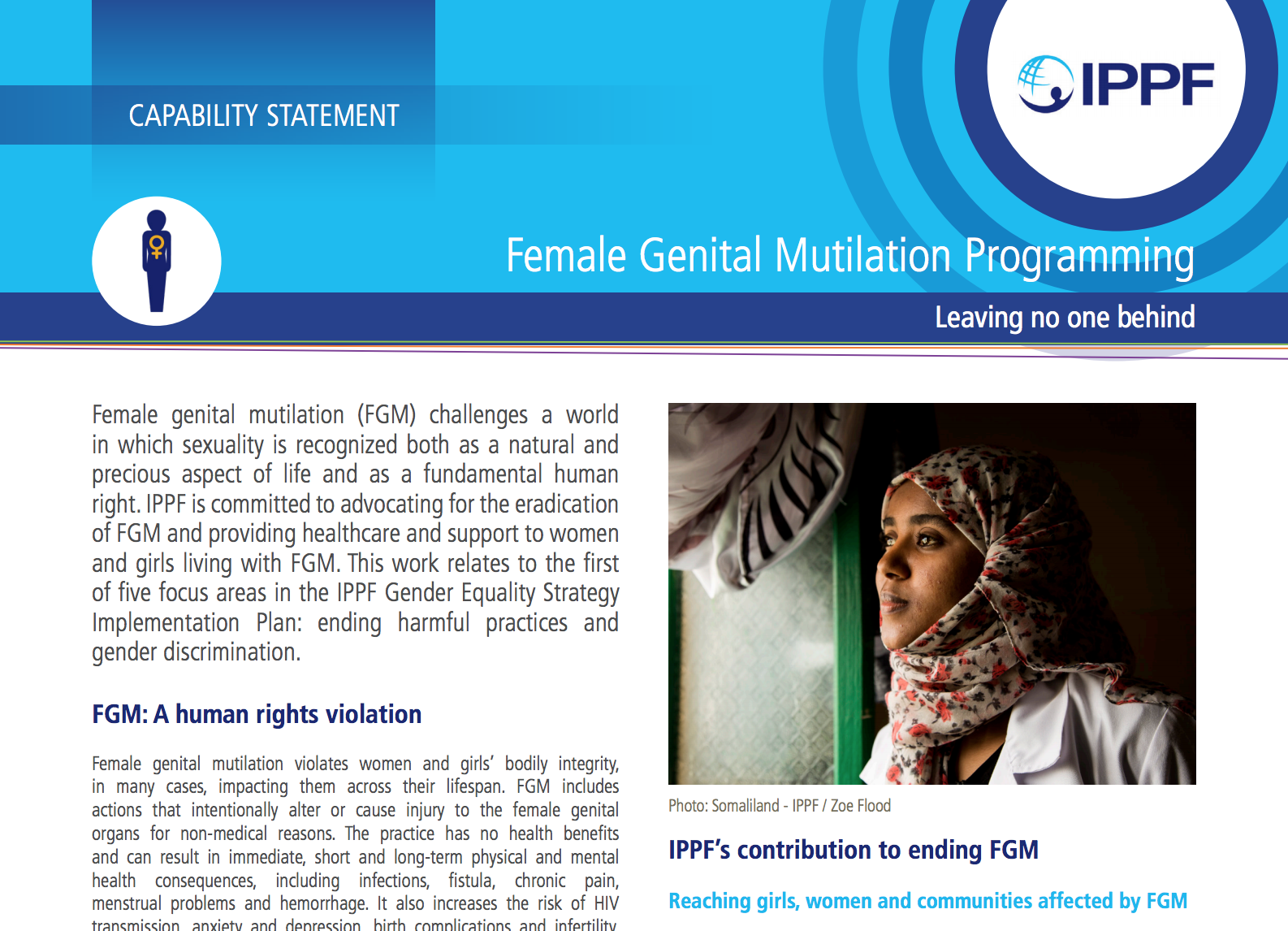
| 18 June 2020
Capability Statement: Female Genital Mutilation
Female genital mutilation violates women and girls’ bodily integrity, in many cases, impacting them across their lifespan. FGM includes actions that intentionally alter or cause injury to the female genital organs for non-medical reasons. The practice has no health benefits and can result in immediate, short and long-term physical and mental health consequences, including infections, fistula, chronic pain, menstrual problems and hemorrhage. It also increases the risk of HIV transmission, anxiety and depression, birth complications and infertility
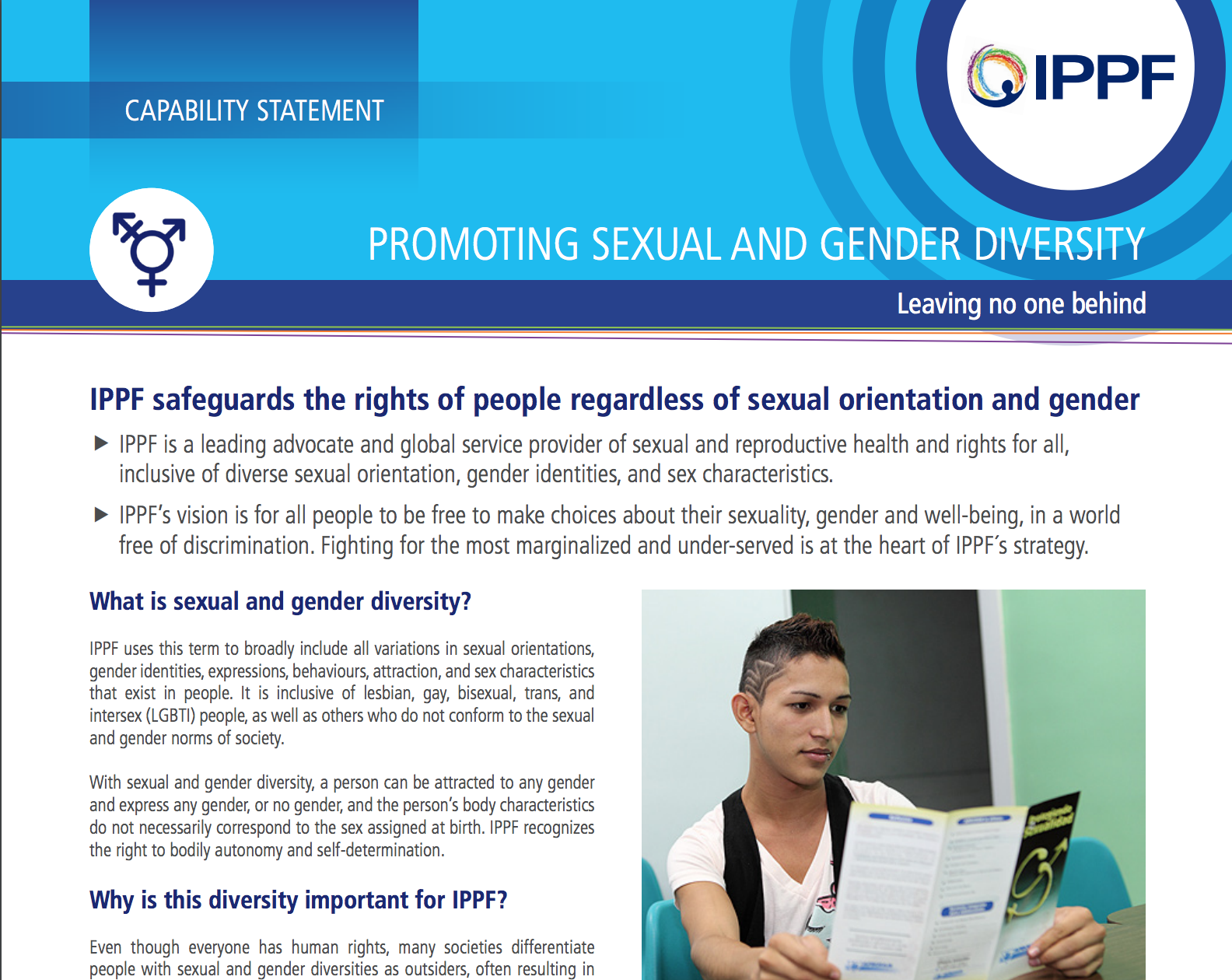
| 18 June 2020
Capability Statement: Promoting Sexual & Gender Diversity
IPPF is committed to working in solidarity with organizations that address the negative sexual and gender norms, and promote and uphold the rights of sexual and gender diverse people at all levels of society. At the Nairobi Summit to mark 25 years since the landmark International Conference on Population and Development (ICPD) in November 2019, IPPF recognized that IPPF and many of its Member Associations are fighting discriminatory laws based on sexual orientation, and committed to supporting each other and engaging with partners to ensure at least six countries change these laws by 2025.
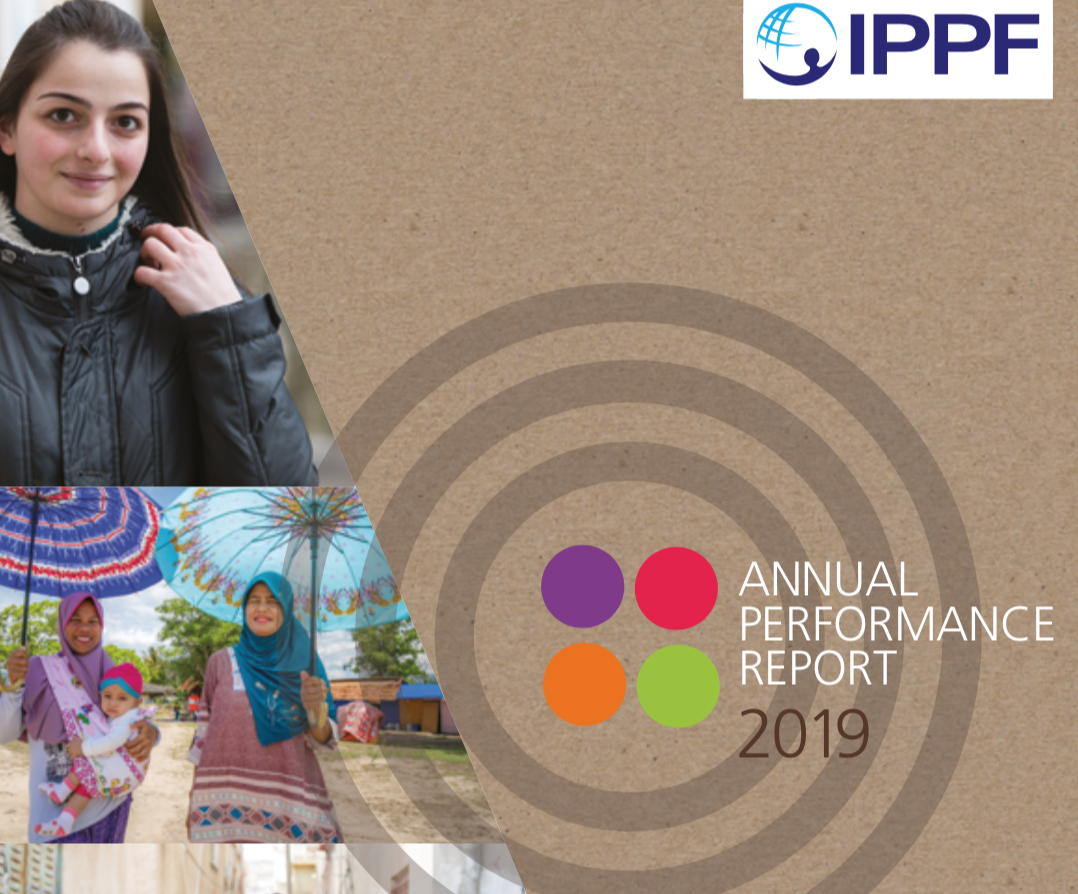
| 05 June 2020
2019 Annual Performance Report - APR
This Annual Performance Report presents progress in implementing the Strategic Framework. In 2019, IPPF delivered 252.3 million sexual and reproductive health services and contributed to 141 policy and legal changes in support of sexual and reproductive health and rights. Each section of the report presents an overview of the key performance results for our four outcome areas and is supplemented with case studies from countries across IPPF.







